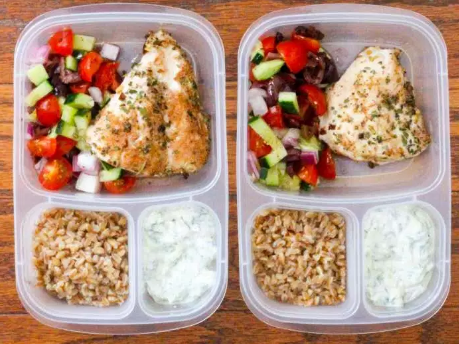Lifestyle
How to eat healthily on a budget
Want to get healthy and save money?
Being healthy does not have to be more expensive. Many of us are looking for low-cost, nutritional solutions – and there are plenty to be discovered! Here are some nutritious tips to help you thrive while also making your money go further.
Cook at home
Cooking at home is less expensive than eating out. Even if you don't enjoy cooking, producing your own fresh food is a crucial skill to have if you want to eat healthily and cheaply.

Plan your meals
It might be hard to plan meals 'on the fly' when shopping. If you don't prepare ahead of time, you'll arrive home from the store with bags of delights but nothing to put into a supper. And winging it when you get home from work may cause you to become upset and call or go out for takeout.

Make a list and stick to it
You're more likely to make impulsive purchases in the supermarket if you don't have a list, especially if you go up and down random aisles. Plan your tour around the store according to your list — and avoid going shopping when you're hungry, since you're more likely to pick up items you don't actually want or need.

Reconsider protein
Meat, poultry, and fish are frequently the most costly items in many people's weekly grocery shopping lists. Diversify your protein intake by include lower-cost alternatives such as legumes — lentils, beans, and chickpeas — which are high in protein and will keep you feeling full.
Avoid buying highly processed food
You may be shocked at how much you pay for highly processed goods such as soda, crackers, cookies, and prepackaged meals.
They are also quite pricey, despite the fact that they frequently lack important elements and may be rich in salt or added sugar.
Topics
- Read Next
-
 My journey with ResLife
My journey with ResLife
 Getting ready to start University (UK Students)
Getting ready to start University (UK Students)
 Benefits of Taking Part in Group Sport
Benefits of Taking Part in Group Sport
 Getting ready to start University (International Students)
Getting ready to start University (International Students)
 The Joy of Fresh Flowers
The Joy of Fresh Flowers
 For the Love of Cake
For the Love of Cake
 Healthier Junk Food Ideas
Healthier Junk Food Ideas
 How to be a better student
How to be a better student
 Cycling for health
Cycling for health
 Top 5 things to look for when choosing a student accomodation
Top 5 things to look for when choosing a student accomodation
- Popular
-
 Benefits of KPOP Dance
Benefits of KPOP Dance
 Fairtrade - What does it mean and why should we support?
Fairtrade - What does it mean and why should we support?
 Sexual health: Staying on top
Sexual health: Staying on top
 What to do if you want to change/leave your University Course
What to do if you want to change/leave your University Course
 Mental Benefits of Board Games and Jigsaw puzzles
Mental Benefits of Board Games and Jigsaw puzzles
 Student’s Guide to Budgeting and Finance Management
Student’s Guide to Budgeting and Finance Management
 How you can brighten up someone's day
How you can brighten up someone's day
 Who are FutureLets?
Who are FutureLets?
 Outdoor Sports to play with friends
Outdoor Sports to play with friends
 #DontBeDaft: The Money Series
#DontBeDaft: The Money Series


